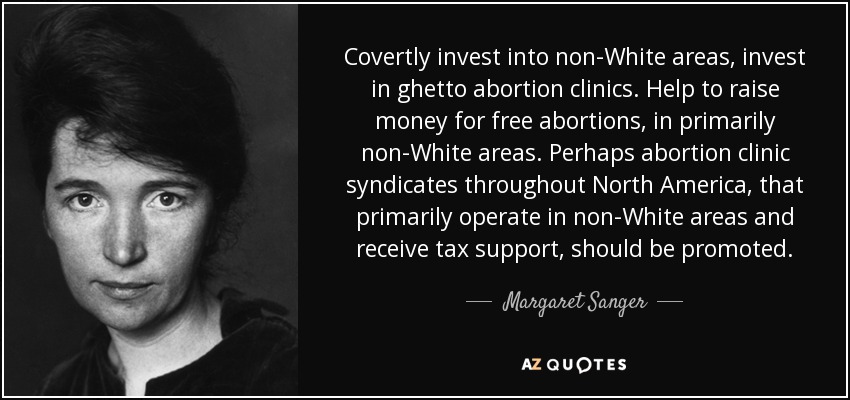Ever since Thomas Robert Malthus in 1798 wrote
An Essay on the Principle of Population, debates on overpopulation have taken many forms. Probably the fiercest and most memorable comprehensive critique of classic Malthusianism was made by Marx & Engels and was continued by socialist and labor organizers after them. “Neo-Malthusian” arguments remained popular among the upper classes in many different forms in many countries for over two centuries, and always were mixed up with many other developments.
The U.S. came quite late to these debates because it had plenty of land and needed people. Fears of the upper classes for their private property, fears of revolution, colonial empire building, racist thinking, pseudo “scientific” fads like social Darwinism and eugenics, finally “lebensraum“ and Nazism, all these rubbed up against countervailing forces working ultimately for greater democracy: growing middle class demands, unionism, anti-colonial struggles, abolitionism, women’s suffrage, even democratic socialism. Nothing occurred in a vacuum. In modern times technology has always advanced, and thus social changes formed a background to cultural change. Worries about “overpopulation,” competition for resources, the threat of war, modern ecological fears, these rarely are based solely on one’s personal wealth. Even less was this true for the early battles for women’s legal rights, or women’s right to birth control.
The growth of trade, manufactures and cities and finally the industrial revolution did indeed lead to unprecedented population increases, which had until then increased very slowly over centuries. As late as 1963 world population was increasing at accelerating rates (reaching a frightening 2% a year). Today population in advanced economies, from the U.S. to Europe to China and Japan, are leveling off or declining ... a result of prevailing economic and social forces and individual family planning decisions. Uneven economic development has its own dangers of course. Many poor societies are dramatically failing, and nobody knows what lies ahead in terms of global sustainability or war.
The OP spoke to the the issue of women’s rights, abortion rights and overpopulation. We see the Ginsburg replacement drama as central, but it is unlikely to substantially change basic trends in population, as it will not outlaw birth control and family planning. A woman’s individual right to choose to have an abortion when all else has failed will likely only be ended in particular states. It is hard to imagine matters going much further that that.
I said the U.S. was late to worry about overpopulation because of our low population and empty continent. But we were FIRST in outlawing contraception in the Western world! Despite our supposed frontier spirit, the old Puritan influences way back in 1873 allowed for passage of the infamous FEDERAL “Comstock Law” essentially outlawing birth control devices and education as lewd and pornographic.
Anthony Comstock's "Chastity" Laws | American Experience | PBS
It wasn’t until 1936 that Margaret Sanger, after much suffering, had begun to win lawsuits against the Comestock Law. There remained strong obstacles forbidding import or distribution across state lines of birth control devices and pamphlets. By 1924 Sanger’s notoriety had at least won her grudging respect among elements of “proper” society, which in those days was mostly profoundly racist. The Republican John D. Rockefeller Jr. and his family gave her much needed annual $5,000 contributions. Of course the years after WWI were terrible years of racism and a national renewal of the KKK. But Sanger was no longer a socialist feminist voice being dragged off to jail, having to flee to England, her sister force-fed in another prison.
It wasn’t until WWII that the fight against the Nazis made eugenics/race laws unpopular, though the U.S. remained a racially segregated society. The ideological atmosphere changed fundamentally when the U.S. emerged as leader of the free world and had to compete with the USSR. Now it’s apartheid rule in southern states, it’s anti-miscegenation laws in most states, these became real propaganda burdens to U.S. aims internationally. Overpopulation in underdeveloped countries in this period also became a tremendous problem as medical advances and cereal revolution occurred, but all around economic development did not keep pace.
It was not until the 1960s that open discussion of women’s sexual needs and access to still technologically-limited forms of birth control became reality for most North American women. The greater legal freedoms women won to control their lives, to work in professional jobs, to plan their families with birth control and eventually legal abortion, these were the issues that absorbed the attention of Ruth Bader Ginsburg.

 Sanger was a deeply racist eugenist who consorted with the Klan. No wonder she is a hero to Dims.
Sanger was a deeply racist eugenist who consorted with the Klan. No wonder she is a hero to Dims.



